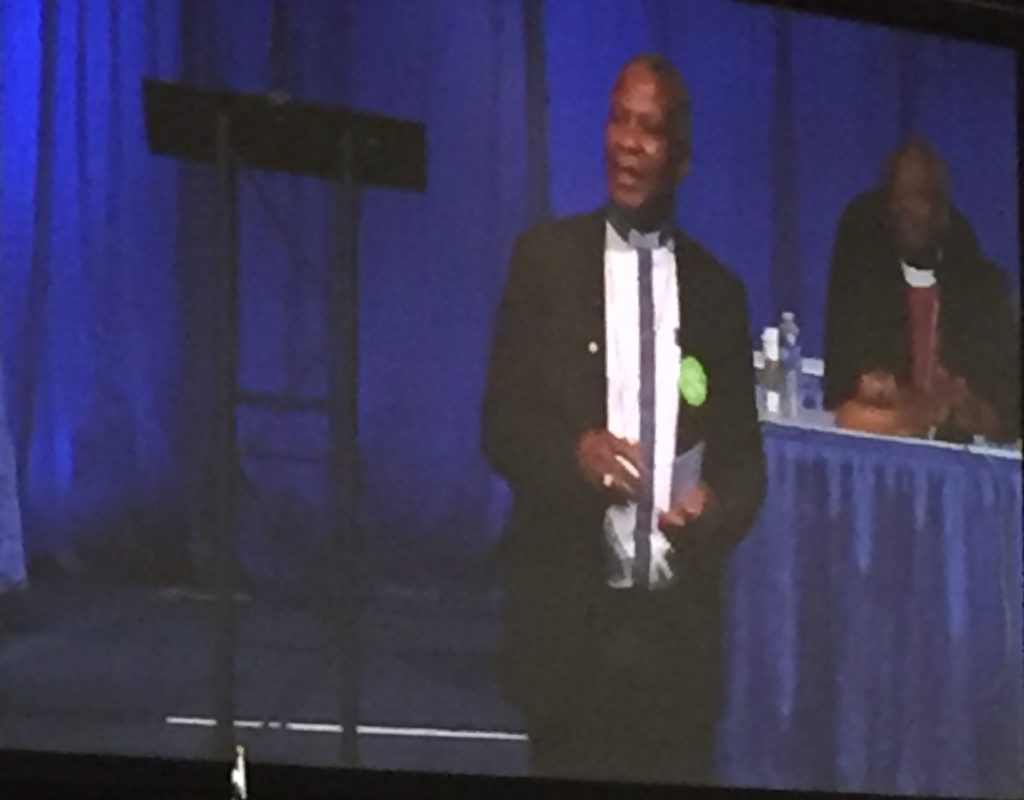This morning saw the third of three joint conversations between the House of Bishops and the House of Deputies, this time regarding the state of the creation whose stewardship is our charge.
Archbishop Thabo Mkgoba of Capetown, South Africa, framed his remarks in the greeting that he taught the gathering: “I see you;” and the biblical framework that sees water as the medium in which creation swims from Genesis to the restoration of the Dead Sea in Revelation.
In Genesis 2, he said, God told us to see to it that creation flourishes, and is not exploited. But the apostle Paul saw creation groaning, and John 3:16 tells us, he said, that God sees what a mess we are in, and that we need Jesus.
Water justice is a critical topic in southern Africa. People are short of water, we learned, not necessarily because water is short, but because we are short on sharing it justly. The impacts of climate change, then, are borne most by the poorest of the poor.
Archbishop Mkgabo cited statistics that since 2008, 24 million people have been displaced by climate change; they have become climate refugees. He reminded us of our recent visit to the T Don Hutto detention center in Taylor, Texas. The women, the refugees, asylum seekers, and immigrants inside waved pieces of paper to let us know they saw us, he reminded us. We went there to tell them we see them.
Creation must be seen, must be felt. We must care.
Bernadette Demientieff spoke of her people, the Gwich’in of Alaska, and their strong physical and spiritual bond to the porcupine caribou. She mourned for the change of environment that her people and their fellow creatures have already experienced. She warned that “the sacred place where life begins” – the breeding ground for the caribou – is under threat from gas and oil exploration. This area is so sacred, she said, her people would not even go there.
“We are up against a very dysfunctional administration,” she said, “but I believe our God is more powerful,” and, “Our children deserve to see the world as it was in the beginning, not just when we’re done with it.”
The Revd Stephanie McDyre Johnson spoke of resurrection, of the return of life to the Hudson River. She encouraged the church with stories of what it already does, to address its own carbon footprint, to educate, to advocate for climate and creation care. For the church, she said, caring about creation is the center of who we are, because it’s about reconciliation.
The conversation continued in small groups throughout the House.

